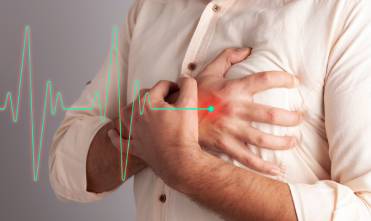
Citizens Speciality Hospital in Nallagandla, Hyderabad provides comprehensive care to people suffering from deteriorating heart function. The units manned with highly accomplished cardiologists, cardiac surgeons, and well-trained supporting staff, who follow an algorithm driven interdisciplinary treatment approach to provide the best possible cardiac care
1. What is Heart Failure?
Heart failure is a condition characterized by inability of the heart to pump enough blood to meet the body's needs. In some cases, the heart can't fill with enough blood. In other cases, the heart can't pump blood to the rest of the body with enough force. Some people have both problems. The term "heart failure” doesn't necessarily mean that the heart has stopped or is about to stop working. However, heart failure is a serious condition that requires medical care.
2. Heart Failure Development and Types
Heart failure develops over a period as the heart's pumping action grows weaker. The condition can affect the right side of the heart only, or it can affect both sides of the heart. Most cases involve both sides of the heart. Right-side heart failure occurs if the heart can't pump enough blood to the lungs to pick up oxygen. Left-side heart failure occurs if the heart can't pump enough oxygen, rich blood to the rest of the body. Right-side heart failure may cause fluid build-up in the feet, ankles, legs, liver, abdomen, and the veins in the neck. Right side and left-side heart failure also may cause shortness of breath and fatigue (tiredness).
Causes of Heart Failure?
Heart failure is caused by conditions that either damage or overwork the heart muscle. As the heart weakens over time, certain proteins and substances may be released into the blood, having a toxic effect on the heart and blood flow, which worsens the condition.
Common causes of Heart Failure
The most common causes of heart failure include coronary heart disease (CHD), high blood pressure, and diabetes. Managing these conditions can help prevent heart failure.
Other causes
Numerous diseases and conditions can also lead to heart failure, such as:
Cardiomyopathy or Heart Muscle Disease:
This condition may be present at birth or develop due to injury or infection.
Heart Valve Disease:
Problems with heart valves may be present at birth or develop due to infection, heart attack, or damage from heart disease.
Arrhythmias or Irregular Heartbeats:
These heart problems may be present at birth or develop due to heart disease or heart defects.
Congenital Heart Defects:
These heart problems are present at birth. Other factors that can damage the heart muscle and lead to heart failure include treatments for cancer, such as radiation and chemotherapy, thyroid disorders, alcohol abuse, cocaine, and other illegal drug use, and HIV/AIDS.
Heart failure signs & symptoms may include:
How is Heart Failure diagnosed?
The diagnosis is done based on the medical and family histories, a physical examination, and a couple of tests. Because the signs and symptoms of heart failure also are common in other conditions, the doctor will:
Managing Heart Failure
While heart failure can't be cured, its symptoms can be effectively managed. Here are some helpful tips:
Basic steps to reduce sodium in your diet:
Exercise is beneficial:
Medical Management of Heart Failure
If you have heart failure, your doctor will prescribe medications. It's crucial to take them as prescribed and report any side effects. Always keep a list of your medications and their dosages.
Cardiac Resynchronization Therapy for Heart Failure
Cardiac Resynchronization Therapy (CRT) or CRTD is a significant new treatment for symptoms associated with congestive heart failure (CHF) caused by weakening of the heart muscle and heart rhythm. In heart failure patients, CRT is used to help improve the heart's rhythm and pumping function of the heart muscle.
The procedure involves implanting a pacemaker, typically just below the collarbone. Three wires connected to the device help "resynchronize" the pumping function of the heart. If your heart is not beating efficiently and you meet the eligibility criteria, you may be eligible for a cardiac resynchronization therapy (CRT) heart device.
ECMO / Impella / Centrimag:
These are used in cases of worsening heart failure for stabilization or as a bridge to permanent therapies.
LVAD / BIVAD:
Ventricular assist devices are employed as a bridge to transplantation or as permanent therapy for those who are not fit for transplant.
Transplantation:
It is the only cure for heart failure, but it requires thorough planning and pre-transplant assessment to assess suitability.
How can Heart Failure be prevented?
The sooner you start risk factor modification and treatment, there are better chances to prevent the heart failure or delay in the progress of the condition.
For People with Healthy Hearts:
If you have a healthy heart, you can take precautions to prevent heart disease and heart failure:
Citizens Speciality Hospital in Nallagandla, Hyderabad, is your dedicated partner in heart health. Our team of highly accomplished cardiologists, cardiac surgeons, and well-trained supporting staff is committed to providing the best possible cardiac care, with a special focus on heart failure.
Reach out to us at Citizens Speciality Hospital, Hyderabad, by calling us at 040 67192021 booking your consultation. Your heart is in good hands with us.